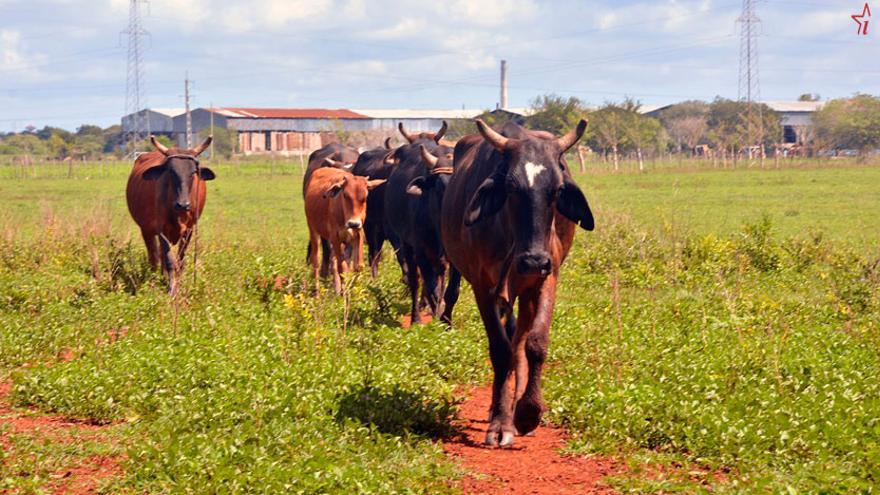
![]() 14ymedio, Madrid, 26 January 2024 — The Ministry of Agriculture has ordered the cessation of purchase and sale of livestock from February 15, with exceptions to slaughters authorized for emergency health reasons or for sale to the State. The objective is to begin, on March 1, a special control to quantify the existing livestock in the country and thus “have a characterization of the current situation of the livestock sector in Cuba.”
14ymedio, Madrid, 26 January 2024 — The Ministry of Agriculture has ordered the cessation of purchase and sale of livestock from February 15, with exceptions to slaughters authorized for emergency health reasons or for sale to the State. The objective is to begin, on March 1, a special control to quantify the existing livestock in the country and thus “have a characterization of the current situation of the livestock sector in Cuba.”
The news has been disseminated in the official press by the general director of Livestock, Arián Gutiérrez Velázquez. The official stressed that they will not be making “surprise visits” to detect illegalities and that livestock owners will be notified in advance of the day the Commission will pass through their farm.
According to their data, there are more than 200,000 people in the registry, natural and legal, who own cattle and buffalo, and about 167,000 who own horses. The ministry will visit producers, owners and hired workers within the sector and aspires to have an adequate account of stocks, diminished by the alarming increase in theft and slaughter.
According to their data, there are more than 200,000 people in the registry, natural and legal, who own cattle, and about 167,000 who own horses
Livestock holders must update their data in the registry before February 29, since there will be a comparison of that figure to the one found in person. “The producers must have their herds updated in the livestock registry and have them branded,” Gutiérrez Velázquez told Granma.
Thus, farmers must declare births, deaths, thefts and slaughter.
According to the last Statistical Yearbook, published in 2023 with the data of the previous year, there were 947,300 horses on the Island and 3,516,400 head of cattle, a figure that contrasts with the six million that were counted in 1958. The numbers in the next census, without a doubt, will prove to be even worse than last year’s.
In the sector’s parliamentary commission, held in December ahead of the second ordinary session of the National Assembly, a report revealed that in 2023, more than 155,000 head of livestock were lost solely by theft and slaughter, and an unknown number of deaths are added due to the lack of replacement. There are not enough cattle due to “deterioration of the food base and the delay in the incorporation of the female into reproduction.”
In 2021, 33,690 head of cattle were lost for the same reason and in 2022, 82,445, which meant 22 million fewer pounds of meat
The damage to livestock mass was evident in that report, which indicated that in 2021, 33,690 head of cattle were lost for the same reason and in 2022, 82,445, which meant 22 million fewer pounds of meat. The document clarified the “accelerated” deterioration, with a mass that “decreases for years, and all indicators have alarming results.”
Ramón Aguilar Betancourt, president of the Agri-Food Commission, stressed that the animals do not have enough food and water, and frequent irregularities are repeated — not declaring births or registering changes in sex and category, among others.
At this time, the so-called “special control action” is being organized, according to Gutiérrez Velázquez, and working commissions have been created at the municipal and popular council levels. The first farmers visited will be those who raise cattle, while those who have horses will be the second. Finally, the Ministry indicates, “the change of ownership will be made to update the possession of larger livestock.”
Translated by Regina Anavy
____________
COLLABORATE WITH OUR WORK: The 14ymedio team is committed to practicing serious journalism that reflects Cuba’s reality in all its depth. Thank you for joining us on this long journey. We invite you to continue supporting us by becoming a member of 14ymedio now. Together we can continue transforming journalism in Cuba.
